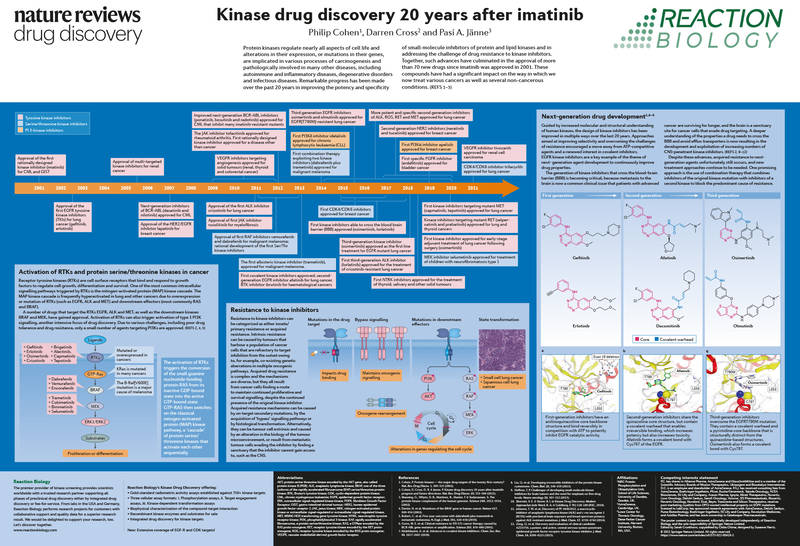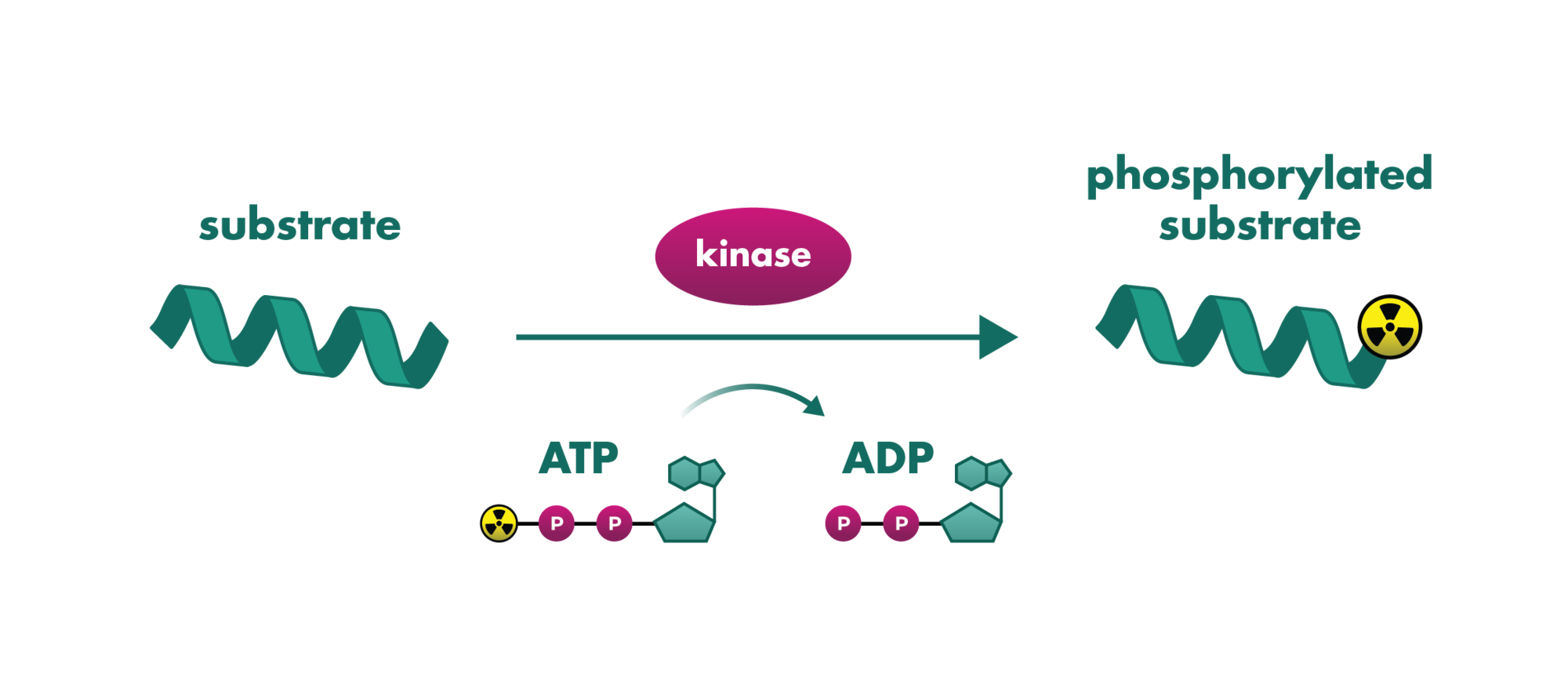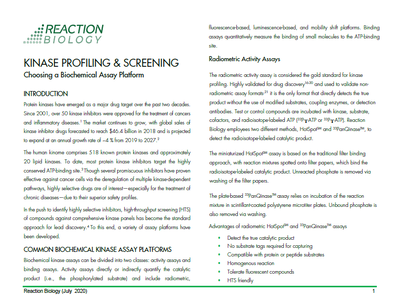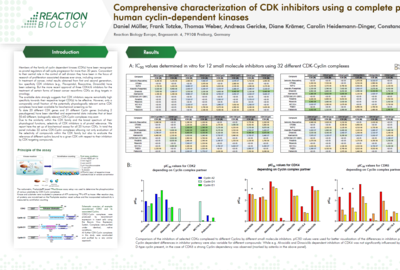Kinase Assays
With the largest portfolio of kinase assays available for drug discovery and 20 years of expertise in custom-tailored assay development, Reaction Biology is guaranteed to provide the in vitro kinase assay you need.
Our kinase assays measure the effects of compounds on kinase activity. Kinase screening can be performed in low, medium, and high-throughput fashion. Our free choice setup allows clients to choose a part of kinases from our portfolio for testing any number of compounds. High-throughput kinase screening is available with cherry-picking, compound management, and IC50 follow-up options.
- Protein kinase assays are performed with gold standard radioactive assay formats to deliver reproducible high-quality data directly measuring enzyme activity, meaning you won’t need to worry about false positives and negatives caused by other formats of detection.
- HotSpot kinase screening service now available at physiologically relevant 1mM ATP for 340 wild type kinases, in addition to existing standard concentrations of 1μM, 10μM or apparent ATP-Km up to 100μM
- Kinase screening can be performed with ATP-competitive, substrate competitive, and allosteric inhibitors.
- Many of our kinase assays are adaptable to any protein or peptide substrate without modification.
Our radioactive kinase assays accurately measure enzyme activity. The kinase screening results of your test substance are provided as % of inhibition or IC50 value. Send us your test substance and we will provide comprehensive profiling and screening results.
Our contract research organization works with pharmaceutical and biotechnology companies as well as academic drug discovery teams from around the world who work with our global team of business development managers to coordinate their research needs with our kinase assay screening facilities








